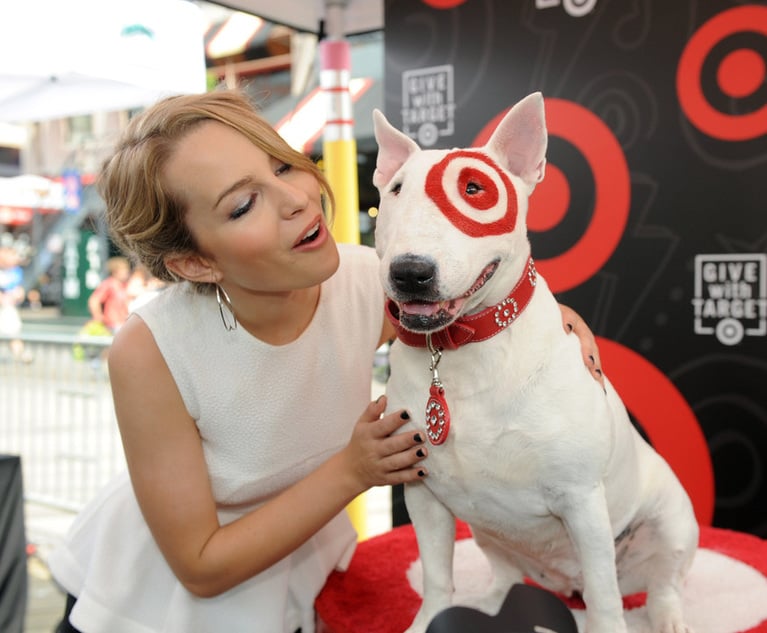Barnes & Noble Education Joins Distributors' Fight Against Counterfeit Textbooks
B&NE adds its name to a growing list of distributors, including McGraw-Hill Education and Pearson Education.
August 02, 2017 at 06:41 PM
3 minute read
In an effort to eliminate counterfeit textbooks in the marketplace, a few distributors have agreed to implement so-called “anti-counterfeit best practices.” The latest to join the list is bookstore operator Barnes & Noble Education Inc.
Publishers Cengage Learning Inc., McGraw-Hill Education, Elsevier and Pearson Education Inc. formed what's called the Educational Publishers Enforcement Group in hopes of raising awareness about counterfeit books. The best practices, developed earlier this year by the EPEG, have since been adopted by textbook distributors Chegg Inc., Ingram Book Group, and now, according to an announcement Monday, Barnes & Noble Education along with MBS Textbook Exchange, which it recently acquired.
By signing on to follow the best practices, B&NE, which separated from bookselling giant Barnes & Noble Inc. in 2015, agreed to maintain a corporate culture that recognizes counterfeit textbooks as a significant issue, as opposed to just a “part of doing business.” The company will further work to verify the sources of textbooks, inspect inventory and share information about apparent counterfeits with publishers.
This content has been archived. It is available through our partners, LexisNexis® and Bloomberg Law.
To view this content, please continue to their sites.
Not a Lexis Subscriber?
Subscribe Now
Not a Bloomberg Law Subscriber?
Subscribe Now
NOT FOR REPRINT
© 2024 ALM Global, LLC, All Rights Reserved. Request academic re-use from www.copyright.com. All other uses, submit a request to [email protected]. For more information visit Asset & Logo Licensing.
You Might Like
View All
Legal Chief of Retailer Beyond Exiting at Tumultuous Time

Dog Gone It, Target: Provider of Retailer's Mascot Dog Sues Over Contract Cancellation
4 minute read
Nike Promotes Legal Chief to Marketing Chief as New CEO Launches Turnaround

King Kullen—the Nation's First Supermarket—Hires Outside Counsel as GC
Trending Stories
- 1Commission Confirms Three of Newsom's Appellate Court Picks
- 2Judge Grants Special Counsel's Motion, Dismisses Criminal Case Against Trump Without Prejudice
- 3GEICO, Travelers to Pay NY $11.3M for Cybersecurity Breaches
- 4'Professional Misconduct': Maryland Supreme Court Disbars 86-Year-Old Attorney
- 5Capital Markets Partners Expect IPO Resurgence During Trump Administration
Who Got The Work
Michael G. Bongiorno, Andrew Scott Dulberg and Elizabeth E. Driscoll from Wilmer Cutler Pickering Hale and Dorr have stepped in to represent Symbotic Inc., an A.I.-enabled technology platform that focuses on increasing supply chain efficiency, and other defendants in a pending shareholder derivative lawsuit. The case, filed Oct. 2 in Massachusetts District Court by the Brown Law Firm on behalf of Stephen Austen, accuses certain officers and directors of misleading investors in regard to Symbotic's potential for margin growth by failing to disclose that the company was not equipped to timely deploy its systems or manage expenses through project delays. The case, assigned to U.S. District Judge Nathaniel M. Gorton, is 1:24-cv-12522, Austen v. Cohen et al.
Who Got The Work
Edmund Polubinski and Marie Killmond of Davis Polk & Wardwell have entered appearances for data platform software development company MongoDB and other defendants in a pending shareholder derivative lawsuit. The action, filed Oct. 7 in New York Southern District Court by the Brown Law Firm, accuses the company's directors and/or officers of falsely expressing confidence in the company’s restructuring of its sales incentive plan and downplaying the severity of decreases in its upfront commitments. The case is 1:24-cv-07594, Roy v. Ittycheria et al.
Who Got The Work
Amy O. Bruchs and Kurt F. Ellison of Michael Best & Friedrich have entered appearances for Epic Systems Corp. in a pending employment discrimination lawsuit. The suit was filed Sept. 7 in Wisconsin Western District Court by Levine Eisberner LLC and Siri & Glimstad on behalf of a project manager who claims that he was wrongfully terminated after applying for a religious exemption to the defendant's COVID-19 vaccine mandate. The case, assigned to U.S. Magistrate Judge Anita Marie Boor, is 3:24-cv-00630, Secker, Nathan v. Epic Systems Corporation.
Who Got The Work
David X. Sullivan, Thomas J. Finn and Gregory A. Hall from McCarter & English have entered appearances for Sunrun Installation Services in a pending civil rights lawsuit. The complaint was filed Sept. 4 in Connecticut District Court by attorney Robert M. Berke on behalf of former employee George Edward Steins, who was arrested and charged with employing an unregistered home improvement salesperson. The complaint alleges that had Sunrun informed the Connecticut Department of Consumer Protection that the plaintiff's employment had ended in 2017 and that he no longer held Sunrun's home improvement contractor license, he would not have been hit with charges, which were dismissed in May 2024. The case, assigned to U.S. District Judge Jeffrey A. Meyer, is 3:24-cv-01423, Steins v. Sunrun, Inc. et al.
Who Got The Work
Greenberg Traurig shareholder Joshua L. Raskin has entered an appearance for boohoo.com UK Ltd. in a pending patent infringement lawsuit. The suit, filed Sept. 3 in Texas Eastern District Court by Rozier Hardt McDonough on behalf of Alto Dynamics, asserts five patents related to an online shopping platform. The case, assigned to U.S. District Judge Rodney Gilstrap, is 2:24-cv-00719, Alto Dynamics, LLC v. boohoo.com UK Limited.
Featured Firms
Law Offices of Gary Martin Hays & Associates, P.C.
(470) 294-1674
Law Offices of Mark E. Salomone
(857) 444-6468
Smith & Hassler
(713) 739-1250






